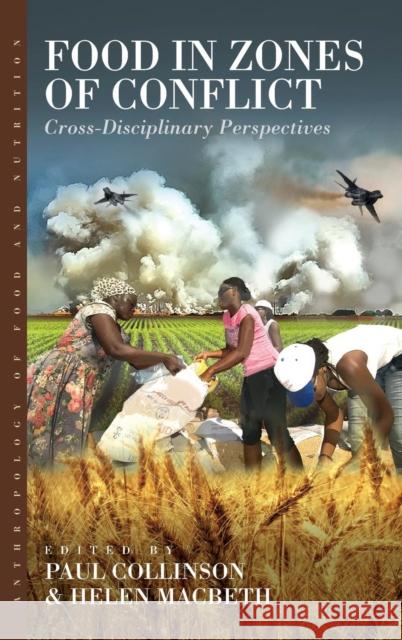Food in Zones of Conflict: Cross-Disciplinary Perspectives » książka
Food in Zones of Conflict: Cross-Disciplinary Perspectives
ISBN-13: 9781782384038 / Angielski / Twarda / 2014 / 252 str.
Food in Zones of Conflict: Cross-Disciplinary Perspectives
ISBN-13: 9781782384038 / Angielski / Twarda / 2014 / 252 str.
(netto: 480,17 VAT: 5%)
Najniższa cena z 30 dni: 498,70
ok. 30 dni roboczych
Dostawa w 2026 r.
Darmowa dostawa!
The availability of food is an especially significant issue in zones of conflict because conflict nearly always impinges on the production and the distribution of food, and causes increased competition for food, land and resources. Controlling the production of and access to food can also be used as a weapon by protagonists in conflict. The logistics of supply of food to military personnel operating in conflict zones is another important issue. These themes unite this collection, the chapters of which span different geographic areas. This volume will appeal to scholars in a number of different disciplines, including anthropology, nutrition, political science, development studies and international relations, as well as practitioners working in the private and public sectors, who are currently concerned with food-related issues in the field. Paul Collinson is an Honorary Research Associate and former part-time lecturer in the Department of Anthropology at Oxford Brookes University. He also works for the UK government. As well as the anthropology of food, his research interests include the anthropology of development and applied anthropology. His research is focused on the Republic of Ireland where he has been conducting anthropological fieldwork since the late 1990s. Helen Macbeth is President of the International Commission on the Anthropology of Food and Nutrition and is an Honorary Research Fellow in Anthropology, Oxford Brookes University. Her main academic interest is in fostering cooperation between biological and social scientists. She has previously edited or co-edited seven volumes, four of which are in this series.
The availability of food is an especially significant issue in zones of conflict because conflict nearly always impinges on the production and the distribution of food, and causes increased competition for food, land and resources. Controlling the production of and access to food can also be used as a weapon by protagonists in conflict. The logistics of supply of food to military personnel operating in conflict zones is another important issue. These themes unite this collection, the chapters of which span different geographic areas. This volume will appeal to scholars in a number of different disciplines, including anthropology, nutrition, political science, development studies and international relations, as well as practitioners working in the private and public sectors, who are currently concerned with food-related issues in the field.Paul Collinson is an Honorary Research Associate and former part-time lecturer in the Department of Anthropology at Oxford Brookes University. He also works for the UK government. As well as the anthropology of food, his research interests include the anthropology of development and applied anthropology. His research is focused on the Republic of Ireland where he has been conducting anthropological fieldwork since the late 1990s.Helen Macbeth is President of the International Commission on the Anthropology of Food and Nutrition and is an Honorary Research Fellow in Anthropology, Oxford Brookes University. Her main academic interest is in fostering cooperation between biological and social scientists. She has previously edited or co-edited seven volumes, four of which are in this series.











